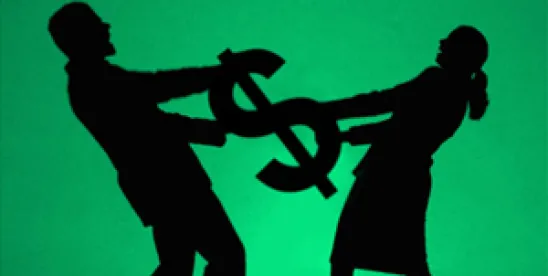In a decision handed down last month, a California bankruptcy judge awarded $45 million in punitive damages against a lender for violating the automatic stay by foreclosing and suing to evict borrowers during the pendency of their Chapter 13 bankruptcy proceedings.
The court found that the borrowers' "Kafkaesque" ordeal began when the lender represented to the borrowers (a husband and wife) that they could not get a loan modification on their mortgage without defaulting on their loan. After defaulting at the advice of the lender, 20 loan modifications were either lost or declared insufficient.
The borrowers eventually filed for Chapter 13 bankruptcy relief, but the lender proceeded with a foreclosure sale and eviction proceedings while the automatic stay of bankruptcy was in place. The court found that during this time, the lender's agents "lurked about" the borrowers' home and "staked out the premises . . . knocked on windows and rang doorbells, all to the terror" of the borrowers.
The lender eventually rescinded the foreclosure but did not tell the borrowers it was doing so. The borrowers rented other premises for $4,000 a month. In the meantime, the lender removed their oven, refrigerator, washer, dryer, drapes, and carpet; let the landscaping die; and failed to pay the homeowners' association fees.
The court found that all of this happened while the wife's mother lay dying. The wife kept a detailed journal during this time of the emotional distress the situation caused her. The husband apparently attempted suicide. The wife was diagnosed with post-traumatic stress disorder. The wife's journal stated, and the court believed, that her mother's dying wish was that she not give in to the lender.
The borrowers sued in state court for wrongful foreclosure, but the state appellate court found that their damages caused by the violation of the automatic stay were preempted by federal bankruptcy law. Accordingly, the borrowers filed an adversary proceeding in bankruptcy court for damages caused by the stay violations.
The bankruptcy court found that the lender's six stay violations were willful and that punitive damages were warranted based on its finding that the lender demonstrated "reckless or callous disregard of the law or the rights of others." The court found that "internal disorder" was no excuse for noncompliance with the automatic stay.
The court awarded actual damages for alternative housing in the amount of $83,200; $17,882 in attorneys' fees for the state court action; $70,000 in attorneys' fees for the adversary proceeding; $401,511 in lost income of the wife due to the adverse health effects caused by the stay violations and $91,351 in lost income of the husband; $24,000 in lost personal property; $26,637 in homeowners' association fees and assessments caused by the dead landscaping; $20,000 in damages for the futile loan modification packet completed; and $40,000 in medical damages. For emotional damages, the court quoted heavily from the wife's especially vivid journal entries detailing how she began cutting herself in reaction to the situation. The court awarded the wife $200,000 in emotional damages and the husband $100,000.
In assessing punitive damages, the court held that the record demonstrated that the actions could not be "chalked off to a rogue employee" but included communications from the office of the CEO, which indicated that the "problem in this case is one of corporate culture." To serve as a deterrent function, the court found it necessary to award punitive damages in a sum "greater than a modest multiple of actual damages" so that the amount would not be "laughed off . . . as a mere' cost of doing business' payable out of the petty cash account." Accordingly, the court awarded $45 million in punitive damages.
To prevent a windfall to the borrowers, however, the court fashioned an unusual punitive damage award. It required the borrowers to remit $20 million to consumer rights nonprofits and $20 million to five University of California law schools. The court reinstated the borrowers' debt, but enjoined the lender from requiring any mortgage payments until 60 days after it paid the damages award.
The lender is appealing the award, so it remains to be seen whether the bankruptcy court's unusual punitive damages award will remain in place. Regardless, the court's decision demonstrates that the consequences of a lender's ignoring the automatic stay are incredibly risky—and that it is no defense to argue that the right hand did not know what the left was doing.






 />i
/>i

